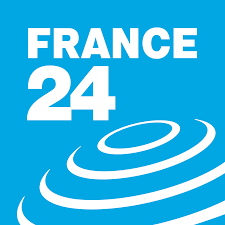How did this expansive stretch of the world’s geography wither to the point where it is hard to remember that it once contained a culture of innovation?
Educators supposedly talk about “teachable moments.” We are surely in the midst of one right now, at least if we are paying attention. Two authoritarian leaders—one representing a major power, and one seemingly intent on ruining what remains of a failing nation—are displaying mistakes that inform and shame at the same time.
China, of course, is the major power. But it would be a sobering lesson for President Xi Jinping to fully comprehend the disbelief of his nation’s trading partners over the misguided decision of quarantining cities like Shanghai because of COVID. Almost nothing else so clearly demonstrates the horrors of a totalitarian state than a YouTube video of faceless and white-suited minions ordering apartment dwellers to appear on their sidewalk to be tested. The quarantine in Shanghai has been so restrictive that some are unable to get the basic necessities of life, including food. This is all in support of Xi’s “zero COVID” dictum that was meant to display China’s better discipline in dealing with the pandemic. Yet his misguided policy has turned the idea of public health upside down, making the lockdown something worse than COVID itself. Nothing says “failed government” as quick as a visual display of compulsory submission that resembles nothing so much as a mandatory morning rollcall of prisoners. To say that this policy of process over compassion has gotten bad press in most of the world is an understatement. By any national standard, China has a tiny fraction of active cases. But, of course, there is apparently no one around to tell President Xi he has made a fool of himself and inadvertently helped spread the few cases that exist. As a reporter from the Australian Broadcasting Company notes, people have been desperate:
But if the wrong-headedness of the Chinese President looks farcical to the rest of the world, the unilateral military actions of Russian President Vladimir Putin are far more troubling and despotic. Putin is still nearly mute head of a long-fading superpower at risk of devolving even further. By now the story of his obsession with the idea of rebuilding a fantasy empire is well known, if also badly out of step with the way the world works in the 21st century. Invading and slaughtering the residents of a sovereign nation is why the global order changed after the Second World War. We have to remind ourselves that the senseless Russian attack is real: a murder spree in plain view of cameras from around the world. Working alone in the tomb of the Kremlin and without a free press, Putin has lulled himself into believing that no one would miss Ukraine if it became a clone of an inert Russia.
But the young democracy has given him more than he bargained for. Ukrainians have what most Russians seem to lack: a sense of personal agency, and of participation in the civil life of a messy democracy. It’s little wonder they were ready to reject being taken over by their moribund neighbor.
No One Wants What Russia Makes
If Russia is not yet a failed state, Putin’s error, along with pushback from most of the world’s democracies, will soon yield that result. Even now Russia’s birth rate is below levels that can sustain it. Many of the young and the nation’s best and brightest have moved to less oppressive countries. And Russia remains a remarkably corrupt and unproductive place, having missed chances to foster tech and progressive innovators like its smaller neighbors of Finland and Sweden. As we all know now, Russia mostly keeps the lights on by falling back on old and sloppy extractive industries like timber, oil and gas. Value-added businesses that make good things are rarer. No one wants Russian cars, appliances, audio components or computers. And many of us are less than happy at the thought of stepping on to a plane maintained by a Russian ground crew. My guess is that even the country’s few remaining and clueless allies may even be rethinking their purchases of those “jack-in-the-box” Russian tanks.
How did this expansive stretch of the world’s geography wither to the point where it can be hard to remember that it was once home to innovative arts and sciences? Instead, the aging residents that have not fled remain mostly silent and too ready to again fall for the fictions of a delusional leader.
I hope we Americans are paying attention. We have our own embarrassing parades of small-minded thinking that threatens long-held personal freedoms. But we are also at a perfect moment to witness the hubris of autocracy alongside the idealism of relatively new and cruelly-tested Ukrainian state. The twin tyrannies of Xi and Putin should remind us of just how much is at stake when small people with stale ideas seize power they have not earned.
![]()


 Anyone in an open society has the advantage of seeing what Putin and his nation cannot. One of the glories of an open society is that information travels easily and mostly unencumbered.
Anyone in an open society has the advantage of seeing what Putin and his nation cannot. One of the glories of an open society is that information travels easily and mostly unencumbered.
 France 24
France 24 BBC (U.K.)
BBC (U.K.) Agence France-Presse (AFP)
Agence France-Presse (AFP) Associated Press
Associated Press MSNBC/NBC
MSNBC/NBC CNN
CNN
 NHK (Japan)
NHK (Japan) Washington Post
Washington Post Reuters
Reuters The New Yorker
The New Yorker Deutsche Welle (Germany)
Deutsche Welle (Germany) The Guardian
The Guardian